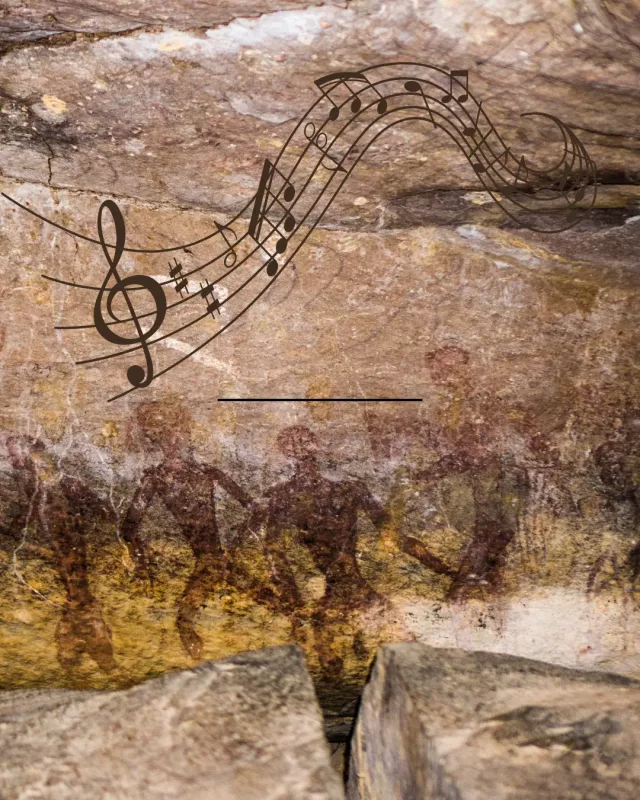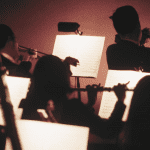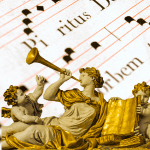Music has been an integral part of human civilization for centuries, transcending boundaries of language, culture, and geography. It has served as a powerful tool for communication, self-expression, and emotional healing. Throughout the ages, philosophers from various civilizations have recognized the profound impact of music on the human psyche and its ability to shape societies. In this article, let us embark on a journey to explore the timeless significance of music in different cultures, the therapeutic benefits it offers, and the profound power it holds to connect people on a universal level.
The Cultural Significance of Music
Music is deeply intertwined with culture, serving as a reflection of our beliefs, traditions, and values. It has the ability to tell stories, evoke emotions, and enrich our lives. Every culture has its unique musical heritage, comprising of traditional songs, melodies, and instruments that have been passed down through generations.
In ancient civilizations, such as Egypt, Greece, and India, music played a vital role in religious ceremonies, rituals, and communal gatherings. It was believed to have the power to connect individuals with the divine and facilitate spiritual transcendence. Similarly, in indigenous cultures around the world, music was used as a means of storytelling, preserving history, and passing down cultural knowledge to younger generations.
National anthems, sports club songs, and ceremonial music continue to unite people and foster a sense of collective identity. Music has the ability to evoke national pride, ignite passion during sporting events, and create a shared experience that transcends individual differences. Think about the iconic anthems like “You Never Walk Alone”, Beethoven’s “Ninth Symphony” or “La Marseillaise” that stir the hearts of millions.
The Healing Power of Music
Beyond its cultural significance, music has also been recognized for its therapeutic benefits throughout history. In ancient Greece, philosophers like Socrates considered music as a means to nurture the soul and develop a good disposition. They believed that the right kind of music could cultivate virtues and refine one’s character.
In more recent times, music therapy has emerged as a recognized discipline, harnessing the power of music to promote healing, reduce stress, and enhance cognitive performance. Research has shown that music can have a profound impact on our emotions, memory, and overall well-being.
In Uganda, for example, traditional music has played a significant role in educating communities about AIDS and other diseases, leading to a decline in infection rates. Music therapy has been used to support individuals with mental health issues, such as depression, anxiety, and post-traumatic stress disorder, providing them with a therapeutic outlet for self-expression and emotional release.
Music as a Universal Language
One of the most remarkable aspects of music is its ability to transcend language barriers and foster connections among people from diverse backgrounds. Regardless of our native tongue, we can all be moved by the power of a beautiful melody or a heartfelt lyric.
Music has the unique capacity to convey emotions, thoughts, and ideas without the need for words. It communicates on a visceral level, touching the depths of our souls and creating a shared experience. It has the power to evoke a wide range of emotions, from joy and happiness to sorrow and sadness, allowing us to connect with ourselves and others in profound ways.
Think about the immense popularity of genres like jazz, blues, and reggae, which originated from the African-American experience but have resonated with people from all walks of life. These genres have served as a vehicle for social and political commentary, giving voice to marginalized communities and fostering a sense of unity.
Music’s Influence on Human Development
From early childhood, music plays a crucial role in our development. Research has shown that exposure to music stimulates brain development, enhances cognitive skills, and improves language acquisition. Children who engage in musical activities tend to have better spatial-temporal skills, memory, and problem-solving abilities.
Learning to play a musical instrument or participating in group music-making activities fosters discipline, teamwork, and creativity. It encourages self-expression, boosts self-esteem, and provides a sense of accomplishment. As children grow, music continues to be a vital part of their lives, shaping their identities and providing an emotional outlet during challenging times.
The Evolution of Music in Different Civilizations
Throughout history, music has evolved and adapted to the changing cultural landscapes of different civilizations. Each era has brought forth its unique styles, instruments, and genres, reflecting the social, political, and technological advancements of the time.
In ancient civilizations, such as Mesopotamia, Egypt, and China, music was primarily associated with religious and ceremonial practices. The use of simple instruments, such as drums, flutes, and lyres, accompanied rituals and storytelling. These early musical traditions laid the foundation for future developments.
During the Middle Ages, music became intricately tied to the Christian church, as Gregorian chants and polyphonic compositions emerged. The Renaissance period witnessed a flourishing of secular music, with composers like Bach, Mozart, and Beethoven leaving an indelible mark on the history of classical music.
In more recent times, the advent of technology has revolutionized the production, distribution, and consumption of music. The invention of the phonograph, radio, and eventually digital streaming platforms has made music more accessible to a global audience. It has also facilitated the emergence of new genres, such as rock, pop, hip-hop, and electronic music, which have shaped popular culture and influenced generations.
Music to Express Identity
Music has always been a powerful tool for individuals to express their identities, beliefs, and emotions. Whether through the rebellious lyrics of punk rock, the soul-stirring melodies of gospel music, or the intricate rhythms of traditional folk songs, music allows us to communicate who we are and what we stand for.
In a world that often seeks to divide us, music has the ability to bring people together, fostering empathy, understanding, and connection. It has been used as a catalyst for social change, amplifying the voices of marginalized communities and challenging societal norms.
Musicians like Bob Dylan, Nina Simone, and John Lennon used their music as a platform to advocate for civil rights, peace, and justice. Their songs became anthems of hope and resilience, inspiring millions to stand up for what they believe in. This particular power of music is not a recent discovery, as already the ancient Greek philosipher Plato (427-327 BCE) noted:
Musical innovation is full of danger to the State, for when modes of music change, the laws of the State always change with them.
– Plato –
The Role of Music in Personal Well-being
On an individual level, music has the power to enhance our well-being and provide solace during difficult times. Whether we seek comfort in a melancholic melody or find motivation in an upbeat rhythm, music has the ability to uplift our spirits and provide a sense of catharsis.
Listening to music can reduce stress, lower blood pressure, and alleviate symptoms of anxiety and depression. It has a direct impact on our brain chemistry, releasing endorphins and dopamine, which are associated with pleasure and happiness.
Engaging in music-making activities, such as singing or playing an instrument, can be a form of self-expression and a source of personal fulfillment. It allows us to tap into our creativity, channel our emotions, and experience a state of flow, where time seems to stand still.
Embracing the Diversity of Musical Expression
As we explore the vast tapestry of music across different cultures, it becomes evident that diversity is a fundamental aspect of its beauty and power. From the intricate rhythms of African drumming to the haunting melodies of Indian classical music, each tradition offers a unique perspective on the human experience.
By embracing the diversity of musical expression, we open ourselves up to new perspectives, broaden our horizons, and foster a deeper appreciation for the richness of our shared humanity. Music has the extraordinary ability to bridge divides, break down barriers, and create a sense of belonging in an increasingly interconnected world. Today, we have more and more possibilities to access music from different parts of the world, let us continue our exploration!
Conclusion
Throughout history, music has proven to be a universal language that speaks to the very core of our being. It transcends boundaries, connects people, and enables us to express our emotions, thoughts, and ideas in ways that words alone cannot.
From the ancient civilizations to the present day, philosophers, scholars, and musicians have recognized the profound impact of music on human civilization. It has served as a means of cultural preservation, a catalyst for social change, and a source of personal well-being.
As we continue to navigate the complexities of the modern world, let us celebrate the power of music to heal, connect, and inspire. Let us embrace its diverse forms and use it as a force for unity, understanding, and positive transformation. In a world where all to often look at what decides us instead at how we are all connected, music has the extraordinary ability to remind us of our shared humanity and bring us closer together. Let us listen, let us create, and let us allow the universal language of music to guide us on this timeless journey.







0 Comments